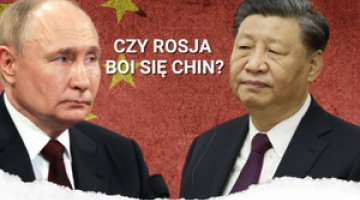Big business in the Russian economy and politics under Putin's rule
Key Points
1. The pace of ownership transfer in the Russian economy has speeded up considerably over the last year. There has been a significant rise in the number of acquisitions of whole enterprises, and large blocks of shares in individual firms and plants. Similarly the number of mergers, bankruptcies and take-overs of failing firms by their strongest competitors has grown.
The ongoing consolidation of individual industrial-financial groups in Russia, the expansionism inside a specific sector, and the expansion of activities into other sectors all have their own special processes and consequences, both economic and political. One common feature of these processes is a trend towards monopolisation of certain sectors of the economy.
2. As these industrial-financial groups have appeared and transformed themselves, their operational strategy has differed from that of the mid-1990s oligarchic conglomerates. The policy of these groupings and holdings has an ever more expedient character, aimed at unifying firms and enterprises into a specific technological cycle, i.e. a process of vertical integration. These holdings now more rarely demand the tax breaks, privileges and state guarantees which were so popular in the 1990s, and now try more frequently to influence the structural changes in the economy which the government has proposed. At present, their lobbying is focused on conditions for conducting business in Russia - custom, currency and tax legislation, financial and tariff policy, and reform of the natural monopolies.
3. After Boris Yeltsin's departure, the Russian business elite was stripped of its former political status; while the phenomenon of oligarchy has almost passed away at the federal level. Vladimir Putin's slogan of 'an equal distance between the oligarchs and the government', as well as the very definite steps taken against some of them, proved that even the most influential 'sharks' in Russian business, Vladimir Gusinsky and Boris Berezovsky, are not immune from this process. However, many examples indicate that among those oligarchs who are 'equally distant' from the Kremlin, some are "more equal than others". One symbol of the new privilege is Roman Abramovich, the owner of the Sibnieft oil company, and a co-owner of the Russian aluminium industry.
4. The most important changes in the relationship between business and the government are taking place at the local level. A process is taking place whereby the financial groups are 'regionalising' their interests. At present, the business 'sharks' are moving ever closer to those regions where their most important enterprises operate, with the aim of 'distancing' themselves from the Kremlin. In some cases, they have not only been 'hoarding' successive plants and branches of industry, but have also assumed political authority in these regions. As yet, this process of 'absorption' of entire territories by certain oligarchic groups has only covered the periphery of the Russian Federation - Chukotka, Yakutia, the Taimyr and Evenkia.
5. In spite of the great autonomy which private business enjoys, the state has maintained instruments which allow it to control and regulate economic processes. This especially concerns its capability to control the most profitable export sectors. Apart from a few exceptions, the government has generally tried to avoid conflict with big business, and is broadening its dialogue with the most important businessmen.
6. The re-grouping and excessive expansion of the vertically integrated holdings and conglomerates may lead to the creation of monopolies in entire branches of industry, which will be able to limit competition and fix prices. Analysts warn that Korean-type chaebol may appear in Russia, and that these businesses will be able to dictate terms to the state. Any further limitation of market competition may be a fundamental problem, which could lead to greater barriers for firms to develop in new directions, higher prices for consumers, and a lack of stimulus for Russian companies to increase their international competitiveness.





